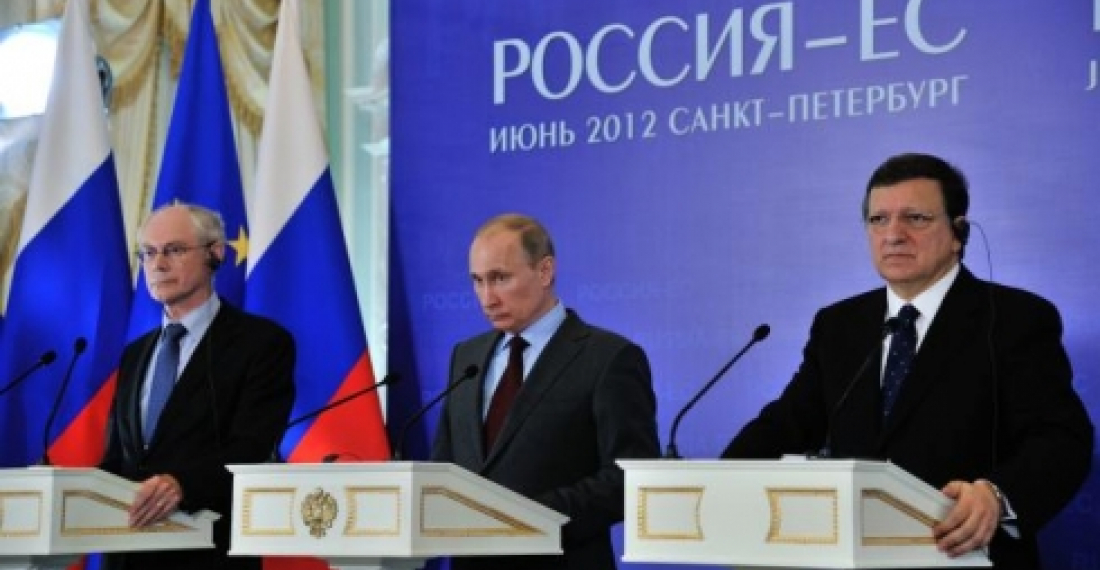There will be no official dinner at the forthcoming EU-Russia Summit which is scheduled to take place in Brussels on 28 January. The Summit is held twice a year, once in Russia and once in Brussels, and usually starts with an official dinner and continues with talks the following day. It offers Russia and the EU an opportunity to review relations and discuss outstanding problems.
This time round the summit has been shortened to one day and the official dinner has been dropped. Diplomats in Brussels are saying that the EU wants to send a message to the Russian leader that it is not business as usual. The Reuters News Agency also quoted one diplomat as saying that the change in the format of the meeting was "a way to be able to speak a bit more frankly, to have a more strategic discussion, instead of the normal theatrical summit."
Differences over Ukraine and Georgia are some of the issues that have been creating tensions in relations. The EU will use the summit with Russia to talk "honestly and frankly" about problems in the relationship, including raising human rights issues, the diplomat said.
Trade between Russia and the EU totalled 336 billion euros in 2012 and neither side wants to jeopardise this. However the number of problems in the relationship have been increasing and recent Russian attempts to undermine the EU\'s Eastern Partnership has caused great irritation in Brussels.
Russia\'s Ambassador to the European Union, Vladimir Chizhov on Monday (13 January) addressed about two hundred officials, diplomats, and journalists during a rare public appearance at the European Policy Centre, a leading think-tank in Brussels.
Chizhov acknowledged that there is a "lack of trust" between Brussels and Moscow that is feeding "misperceptions" dating back centuries.
"It‘s our common duty to try to break this vicious circle," he said.
He argued that Russia‘s project for a Customs Union with other former Soviet republics was "neither the EU‘s geopolitical rival, nor a Soviet Union 2.0." Moscow also plans to work towards a Eurasian Economic Union. Treaties should be signed and ratified this year, so that ithe Union can enter into force on January 1, 2015, Chizhov said. He called for the EU and Russia to "look for ways to harmonise the European and Eurasian integration processes." He also suggested that progress at the summit on visa-free access to the EU for Russians "would be welcome."
The Russian diplomat also referred in his speech to problems between Russia and the EU on energy issues and said that Gazprom was holding consultations with the European Commission regarding anti-monopoly sanctions against the Russian company but said that he was not aware of the details of these consultations."I can only confirm that the parties are holding consultations," he said.
The EU in September 2012 started an anti-monopoly investigation of Gazprom following a complaint by Lithuania.
source: commonspace.eu with agencies
photo: President Putin with EU Council President Van Rumpoy and Commission President Barroso at the EU Russia Summit in St Petersburg in 2012 (archive picture).







